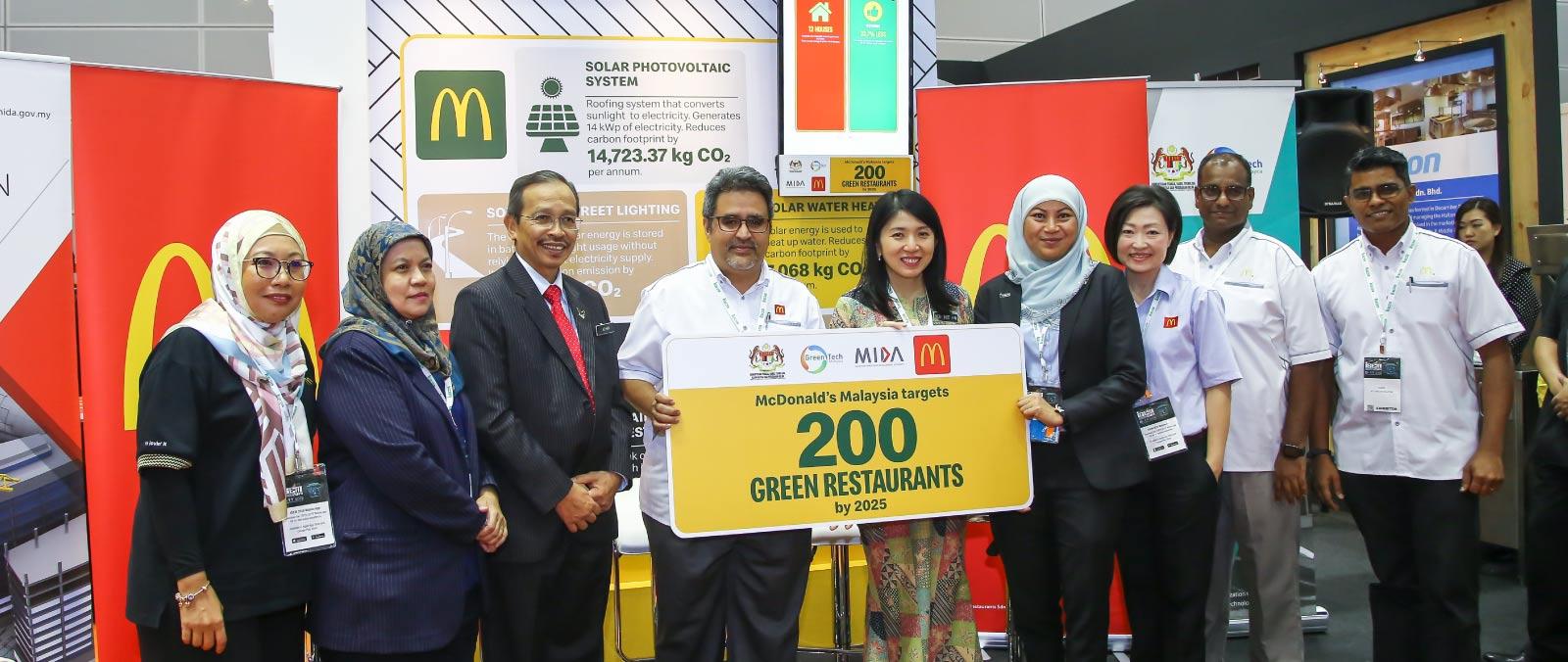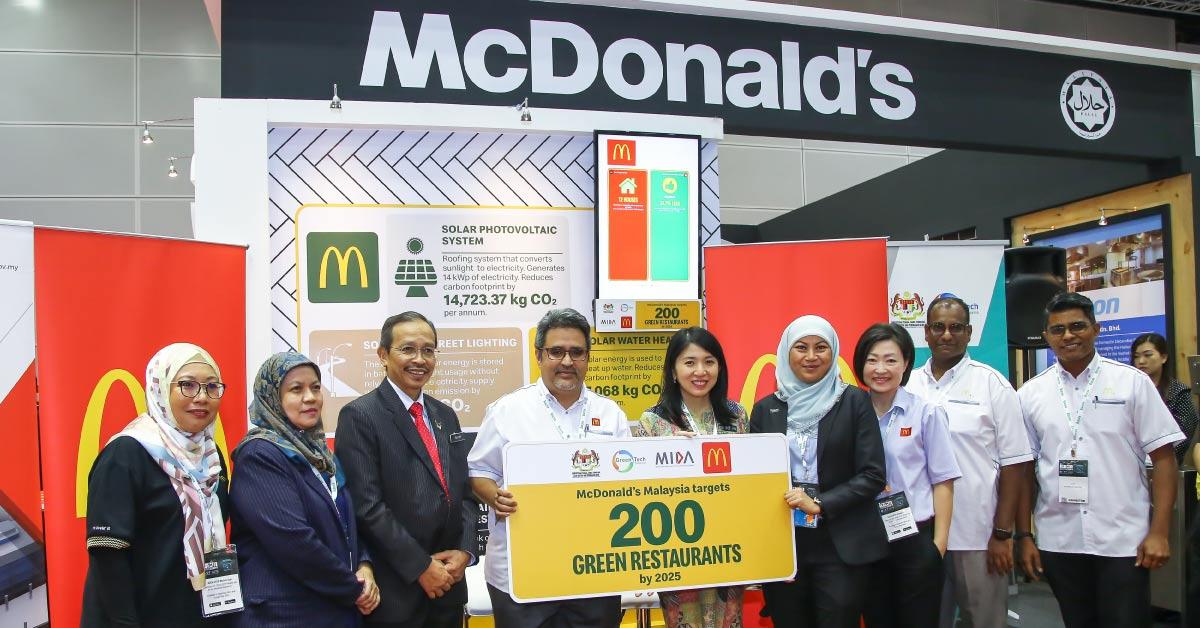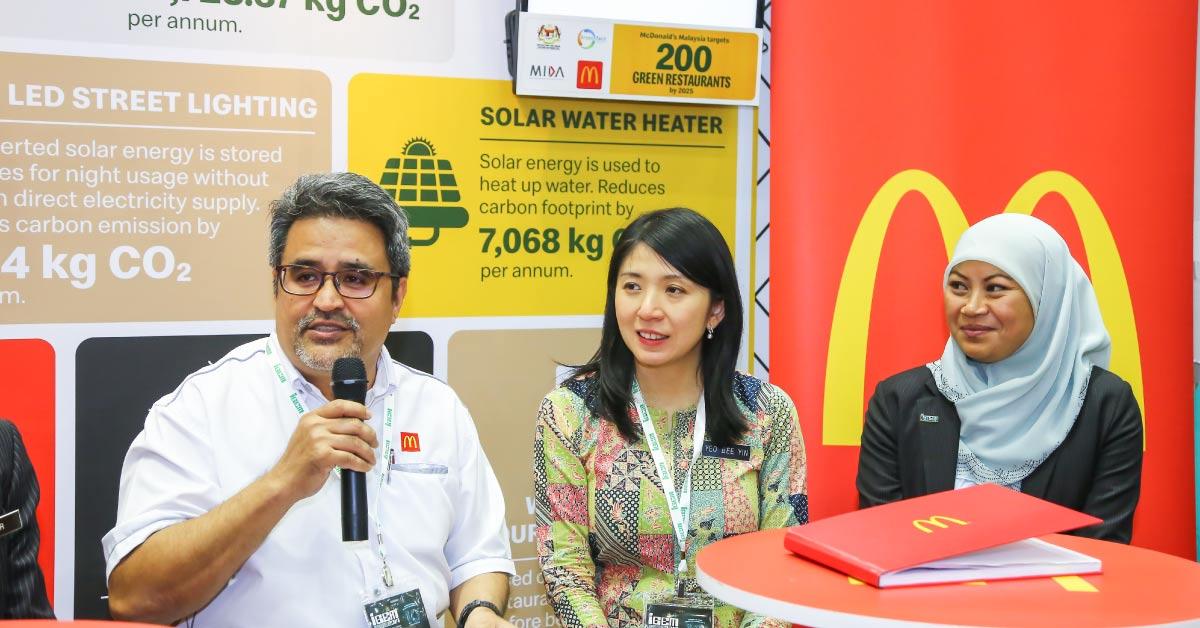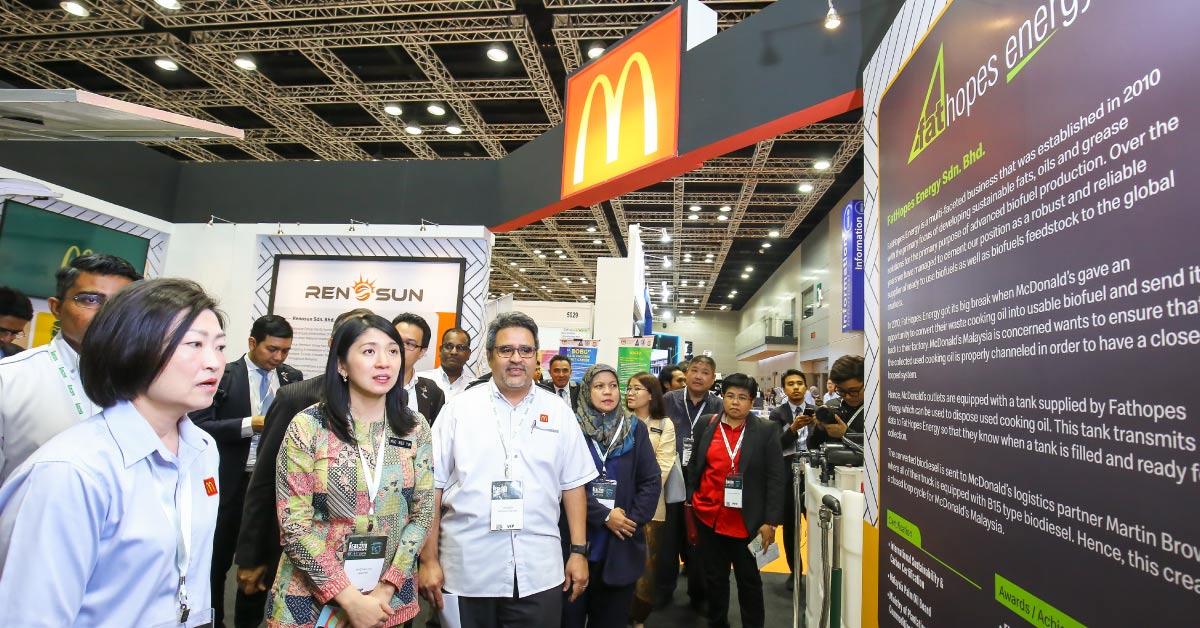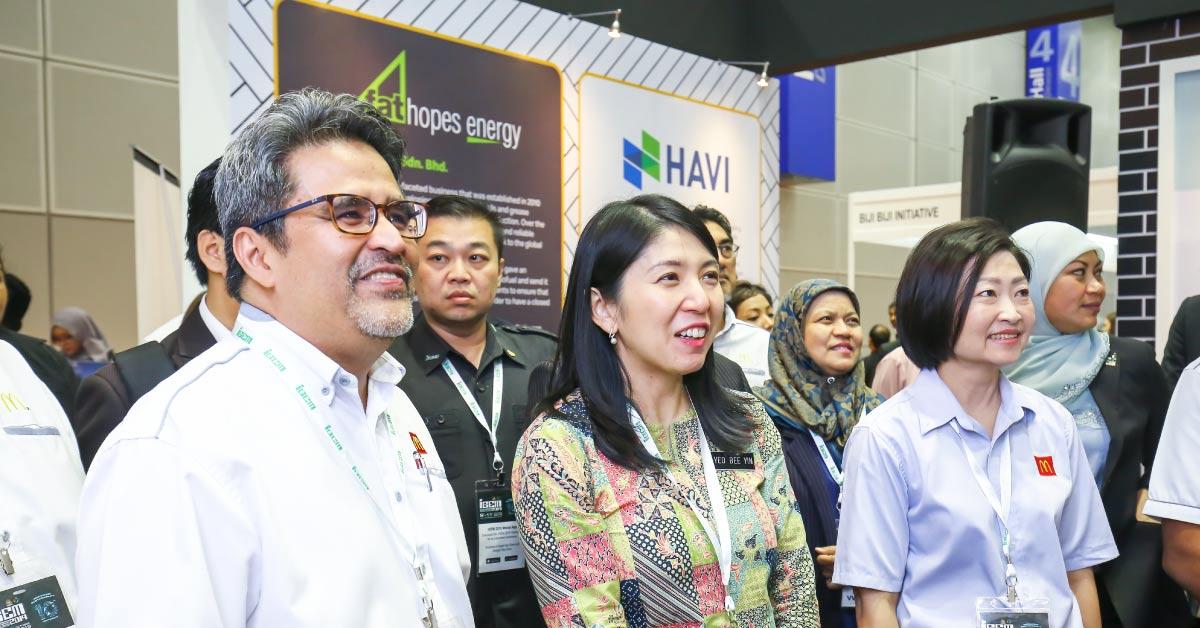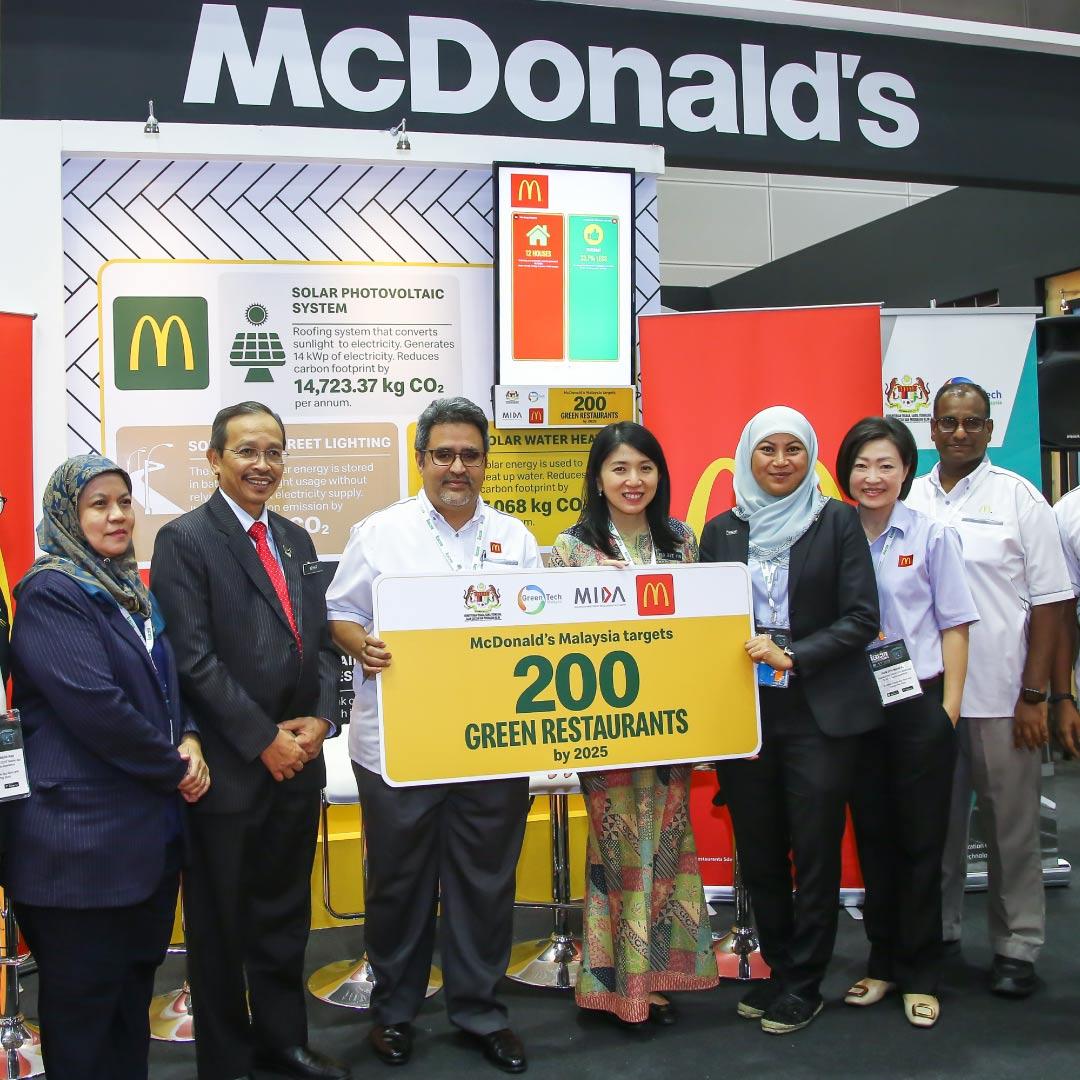
KUALA LUMPUR, 10 October 2019 – McDonald’s Malaysia announced today that it targets to open 200 green restaurants by 2025, as part of its commitment towards long-term sustainability efforts. The quick-service restaurant chain will be investing up to RM60 million in the next 5 years by procuring Energy Efficient (EE) and Renewable Energy (RE) equipment for the 200 restaurants, which includes new and remodelled outlets.
This announcement was made during the 10th International Greentech & Eco Products Exhibition & Conference Malaysia (IGEM) today, where the Minister of Energy, Science, Technology, Environment & Climate Change (MESTECC), YB Yeo Bee Yin, was also present.
As of 2019, McDonald’s Malaysia has 54 restaurants equipped with EE and RE equipment, totalling to an investment value of RM11.5 million; while up to 124 restaurants have already implemented at least one of the green initiatives that the company has committed to. McDonald’s Malaysia currently has more than 280 restaurants nationwide.
“As a company and brand with an extensive global footprint, we have a responsibility to do our part for people and the environment. We aim to use our Scale for Good strategy to achieve this objective while helping the nation meet its commitment to reduce the country’s greenhouse gas (GHG) emissions. In view of this, we are working towards ensuring that 100 percent of our restaurants are fitted accordingly with EE and RE equipment,” said Azmir Jaafar, Managing Director and Local Operating Partner of McDonald’s Malaysia.
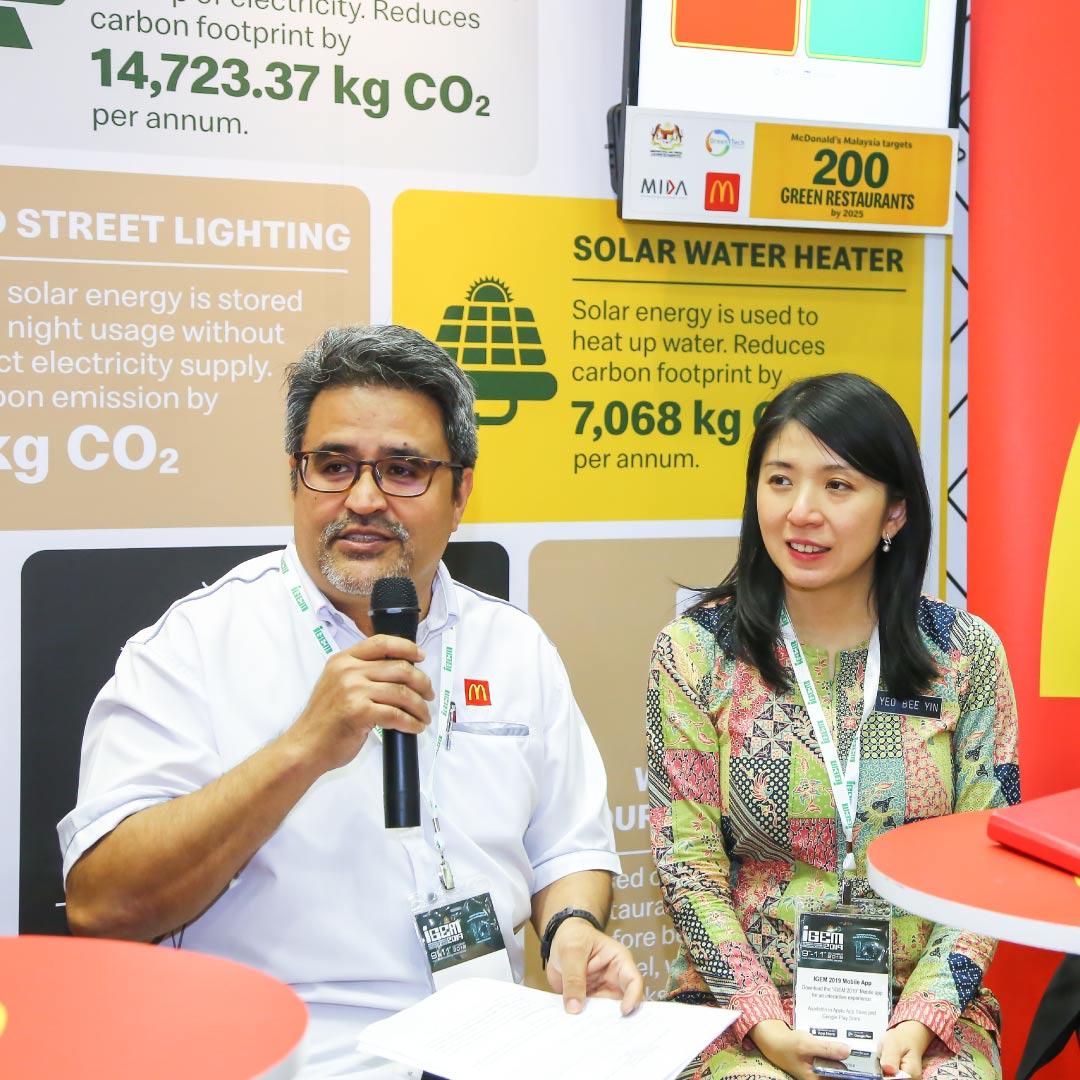
McDonald’s Malaysia’s first full-fledged sustainable drive-thru restaurant in Setia Alam is a model restaurant with sustainable features that has enabled operational savings for the company. Key green features at the restaurant, which will also be installed in stages for all McDonald’s outlets nationwide include:-
• Roofing System Integrated with Solar Photovoltaic, which converts sunlight to electricity. The generation of electricity from Solar PV contributes to the reduction of carbon footprint.
• Thermal Solar Water Heater, which utilises solar energy to heat up water. The heated water is then used for sanitation purposes in the restaurant.
• Rainwater Harvesting System, which is installed in all McDonald’s drive-thru standalone restaurants. The rainwater harvesting tank collects rainwater and is used for irrigation purposes.
• Solar LED Street Light, where converted solar energy is stored in batteries for night usage, without relying on direct electricity supply.
• Hybrid Air-Conditioning System, which enables 25% - 35% of energy savings as compared to traditional air-conditioning systems.
• Smart Thermostat, which measures the temperature in the room and adjusts the temperature accordingly.
• Capture Jet + Restaurant Air Balancing, which is used at fryers to eliminate effluent heat, smoke, and greasy vapours during the frying and grilling process. This ensures the exhaust system is optimised, contributing towards a reduction in the usage of air conditioning.
• Automated Water Faucets, allowing for limited water disposal which helps to eliminate water wastage by about 32 percent.
• Used Cooking Oil to Biodiesel, where cooking oil is recycled into biodiesel, to be used by McDonald’s delivery trucks.
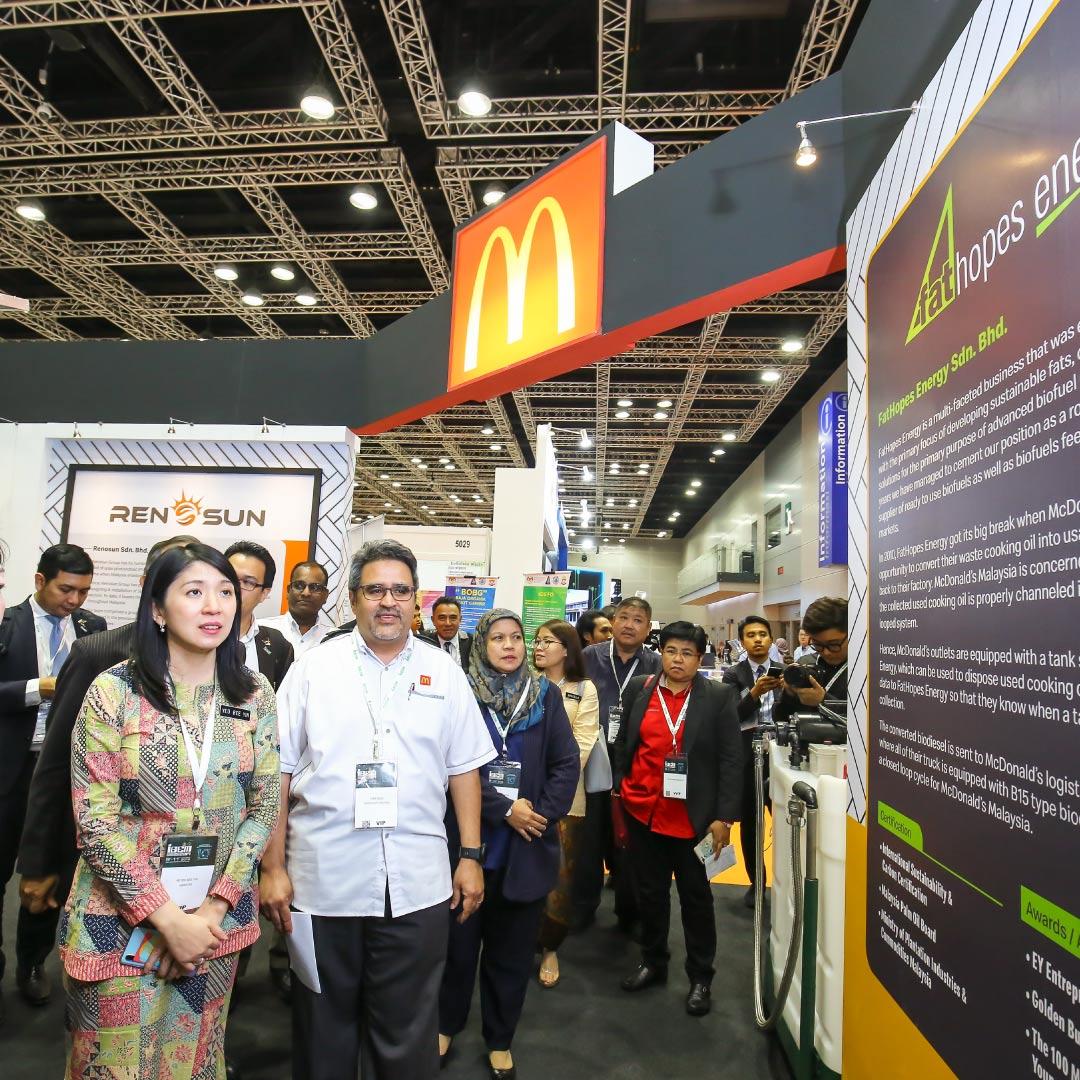
Other sustainable features that can be seen at McDonald’s restaurants include green wall, low VOC paint, energy monitoring system, and the use of RSPO certified sustainable palm oil. McDonald’s Malaysia has also introduced waste segregation practices in all its restaurants nationwide to instil the habit of recycling among crew members, while also reducing the cost of processing waste.
In addition to that, McDonald’s Malaysia has also managed to reduce 400 tonnes of carbon dioxide year-to-date through its green technology solutions. This translates to RM300,000 savings in energy bills.
On top of that, the company has also introduced 100 percent sustainable fibre packaging in all its restaurants. Since 2015, the company ensured that carryout bags used at all McDonald’s restaurants were made of 100 percent recycled materials. Additionally, all restaurants nationwide have also significantly reduced the usage of plastics bags and plastic lids since 2015.
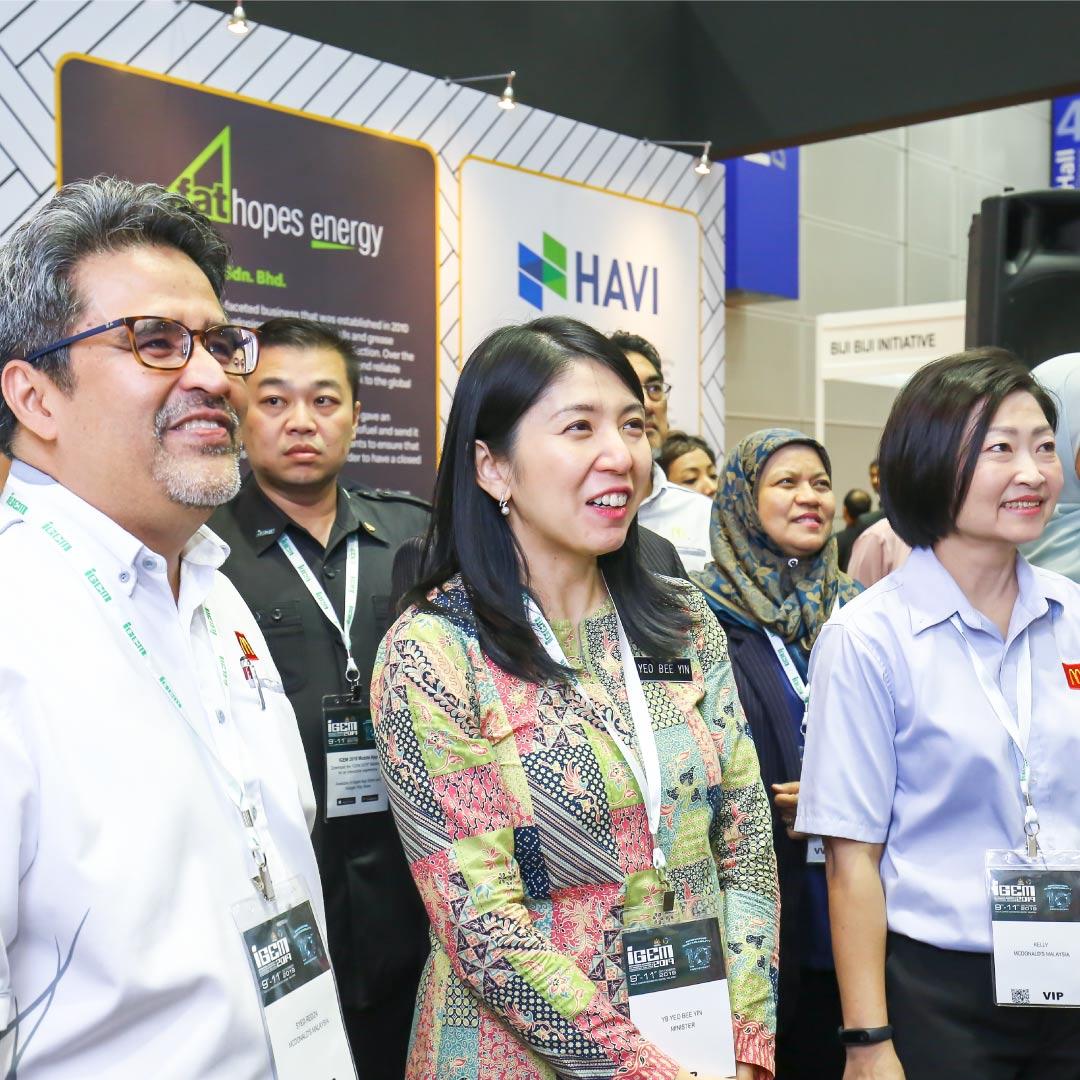
One of the more recent implementations that took place early this month include replacing plastic McFlurry cups and lids with alternative materials. This, together with other efforts to combat the use of single-use plastics, have resulted in the reduction of 276 tonnes of plastics per year for McDonald’s restaurants nationwide.
Through the company’s ‘Say No To Straw’ campaign, McDonald’s Malaysia had also successfully reduced 55 million pieces of straws nationwide. Apart from that, the company has also stopped the use of foam packaging by making the switch to paper since 2017.
To strengthen the development of green technology, the government, under Malaysia Investment Development Authority (MIDA), provide incentives in the form of investment tax allowance for the purchase of green technology assets and income tax exemption for the use of green technology services and system.
